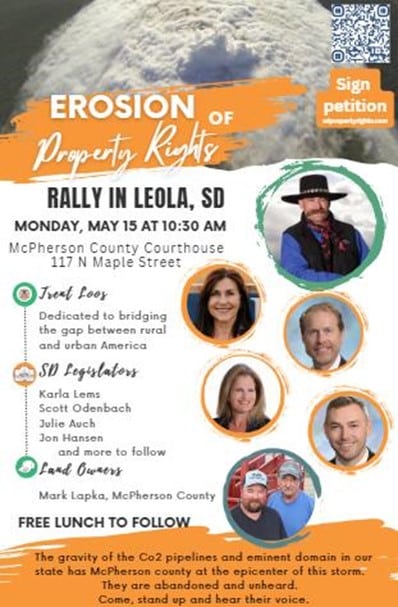
The Biden administration intends to shackle fossil-fueled power plants with crippling new restrictions on their carbon-dioxide emissions.
Last week, the U.S. Environmental Protection Agency issued a proposal that — if enacted — will set strict limits not only on new gas-fired combustion turbines, but also on existing coal, oil, and gas plants.
The EPA claims that over the next 20 years, the new regulations will produce “climate and public health benefits” worth $85 billion. The agency’s press release also says the new regulations will prevent premature deaths and hospital visits. Here’s EPA Administrator Michael Regan, plugging this propaganda:
When finalized, these technology standards will significantly reduce greenhouse gas emissions from fossil fuel-fired power plants, protecting health and protecting our planet.
EPA Administrator Michael Regan
Despite his sunny outlook, the agency’s crackdown will force power plants to use expensive and wasteful carbon-capture technology. Their only option would be another costly and inefficient switch to hydrogen fuel.
The proposal would impact nearly 3,400 power plants, which produce some 60 percent of the nation’s electricity.
Democrat Senator Joe Manchin of West Virginia vowed to oppose all of Biden’s EPA nominees because of what he calls this “government overreach.” In a statement issued last week, he wrote:
This Administration is determined to advance its radical climate agenda and has made it clear they are hellbent on doing everything in their power to regulate coal and gas-fueled power plants out of existence, no matter the cost to energy security and reliability.
U.S. Senator Joe Manchin (D-W. Va.)
Jason Isaac of the Texas Public Policy Foundation told The Daily Wire:
Carbon capture technologies are so expensive that the result will be the sudden retirement of reliable generation, and there will be nothing to replace it. This is a prime example of an unelected executive agency run amok, with a single-minded agenda of eliminating fossil fuels and controlling how we produce and consume energy regardless of the costs or consequences, all while doing nothing to mitigate a changing climate.
Jason Isaac of the Texas Public Policy Foundation
On his blog, author and energy policy expert Steve Goreham explains the infeasibility of carbon capture. He says that it “has been slow to take off due to the cost of capture and the limited salability of carbon dioxide as a product.” Black Hills Energy in Wyoming, for example, estimated a cost of outfitting two of its existing coal plants at $980 million — three times the capital required to build the plants.
But of the 39 facilities that already capture CO2 around the world, “many are not meeting their carbon-capture goals or are incurring costs well over budget,” says Goreham. It’s only because of billions in government subsidies that these operations launch and stay afloat. And even after completion of the 300 carbon capture projects that are currently being planned worldwide, Goreham says they “may be able to boost capture to 0.5 percent of man-made emissions.”
The International Energy Agency wants nine percent of the world’s carbon emissions to be captured and stored, and estimates that between 70 and 100 capture facilities will have to come online each year between now and 2050 to achieve that goal.
Meanwhile, landowners throughout the nation’s Corn Belt are defending their private-property rights against carbon-capture companies that threaten to use eminent domain to lay their hazardous pipelines. Not only would this amount to theft of private property by for-profit companies, but it would also put thousands upon thousands of acres of quality farmland to pasture. Moreover, the compressed, liquified carbon dioxide that runs through these pipelines is highly toxic to humans and animals.

State legislators and land owners held a rally in McPherson County, South Dakota, on Monday to protest the “Erosion of Property Rights.” Nebraska farmer and radio personality Trent Loos, the “Voice of Rural America,” joined them, asking attendees to sign the petition to protect property rights at SDPropertyRights.com.
The supreme irony of the situation, as these farmers know very well, is that carbon dioxide is not a pollutant. It is “the gas of life,” without which “all life on Earth would die,” as Wide Awake Media tweeted recently, when it forwarded this promotional video from the CO2 Coalition:
We are told the debated on climate change is over. We are told people are dying from a climate crisis. We are told the world will end in 12 years. We are told this is our fault, all caused by carbon dioxide created by the energy that powers our lives.
This is not true. These claims are not supported by the data to date.
We are the CO2 Coalition, a research organization of over 50 climate scientists and energy economists. We are saving the people of the planet from the people who claim they are saving the planet. We are changing the conversation about climate and carbon dioxide, a mild warming gas and a powerful plant food.
We know the benefits of CO2. Food can be grown where it wasn’t grown before. It has increased crop harvests by a third. Farmers pump it into their greenhouses to produce more food for your family.
NASA satellites tell the story. CO2 has greened the globe in the last 100 years. Many deserts are shrinking because of new plant growth. Trees are growing larger and more efficient, with less water required. CO2 is a beneficial byproduct of the cheap, reliable energy that is raising life expectancy all over the world.
Even the U.N. admits there has been no increase in hurricanes, droughts, floods and rate of sea-level rise in the last 100 years. Politicians are pushing policies which will reduce our prosperity and jeopardize our food security. So why give into fear and destroy our economy, when we can reduce poverty, improve health and longevity, increase prosperity for billions around the world?
Join us today to protect our future and give everyone a chance.
Carbon Dioxide: Part of a Greener Future





